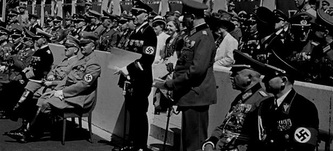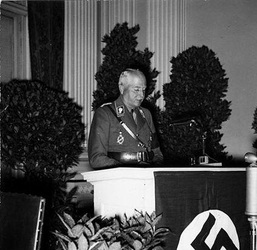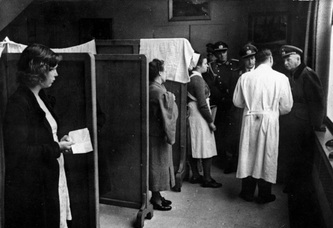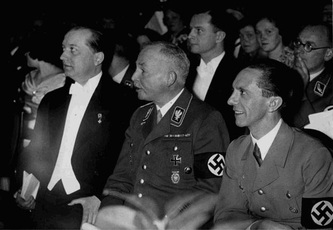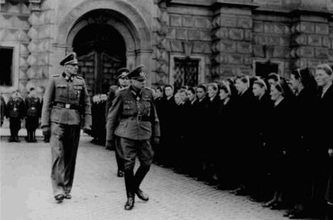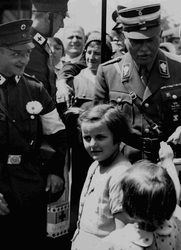The National Socialist German Workers' Party
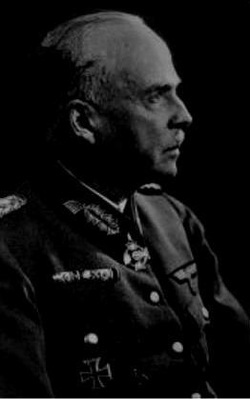
By the end of World War I, Europe became desperate for change.
People began to question the European Empires and the Royal Dynasties who ruled them.
“What’s the point in Royal Europe? In having this Europe of families if they are unable to prevent appalling conflict?”
A wave Revolutions soon took hold and precipitated to dissident organizations which promoted reform and independence. Some of which include; Communists, Anarchists, and Socialists.
One of the most prominent and fastest growing of these was lead by the charismatic, former Army Corporal, Adolf Hitler. These minority groups often resorted to political murder. And between 1918 and 1922 over three hundred and seventy politicians had died as a result of menace and lawlessness.
For the rejected Charles Edward who had been branded a traitor by both sides,,the right-winged political party offered a return to order and strength. He soon publically announced his support of their project, which was to overthrow the Weimar Republic. In doing so, he became the first Prince in all of Germany to support the National Socialists.
Hitler soon appoints him president of the Anglo-German Fellowship to promote Pro-German feeling and help deflect attention from Germany's increasing military strength and aggression.
Carl Edward says in one of his letters to Alice, “It’s so wonderful that one is still needed these days".
People began to question the European Empires and the Royal Dynasties who ruled them.
“What’s the point in Royal Europe? In having this Europe of families if they are unable to prevent appalling conflict?”
A wave Revolutions soon took hold and precipitated to dissident organizations which promoted reform and independence. Some of which include; Communists, Anarchists, and Socialists.
One of the most prominent and fastest growing of these was lead by the charismatic, former Army Corporal, Adolf Hitler. These minority groups often resorted to political murder. And between 1918 and 1922 over three hundred and seventy politicians had died as a result of menace and lawlessness.
For the rejected Charles Edward who had been branded a traitor by both sides,,the right-winged political party offered a return to order and strength. He soon publically announced his support of their project, which was to overthrow the Weimar Republic. In doing so, he became the first Prince in all of Germany to support the National Socialists.
Hitler soon appoints him president of the Anglo-German Fellowship to promote Pro-German feeling and help deflect attention from Germany's increasing military strength and aggression.
Carl Edward says in one of his letters to Alice, “It’s so wonderful that one is still needed these days".
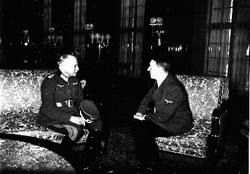
Hitler had provided Charles Edward the chance to return to Britain with his head held high. He was seen as the “ideal door-opener” or “ice-breaker”. His connections to the Royal Family would allow the message that Hitler saw Britain as an ally, to be heard.
Now overjoyed to be making regular trips to England, Charles Edward felt that in the Prince of Wales he had found a real ally. Both cousins shared an admiration of Hitler, and optimistic Charles Edward reported back that the future King of England did not want Britain to go to war with Germany.
With the new King on the throne, Charles Edward’s optimisms and sense of importance on the world’s stage grew. He had the ear of the king and was viewed by many as a staunch ally to Hitler.
But his hopes were soon dashed. Just months after he became King, Edward VIII abdicated. And with Charles Edwards only British ally gone, he once again found himself ostracized (Hitler’s favourite royal, 2007).
